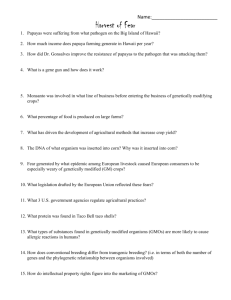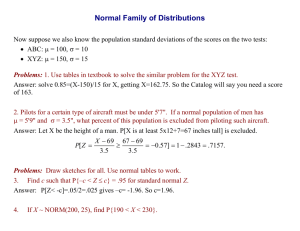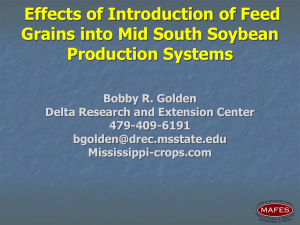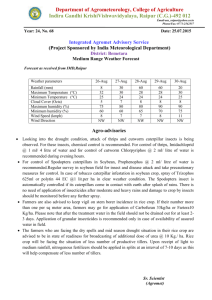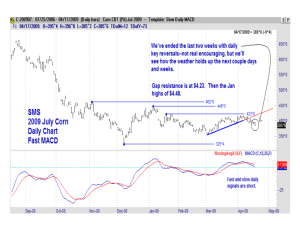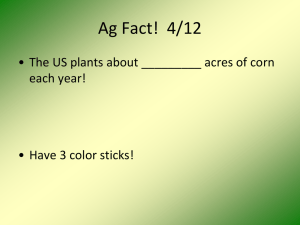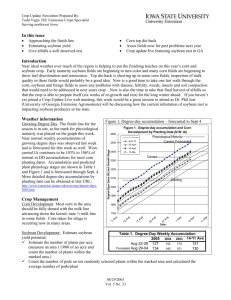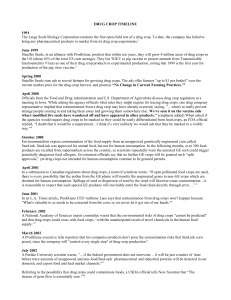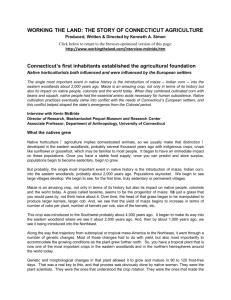August 13 - Vol 2, No 19 - Iowa State University Extension and
advertisement
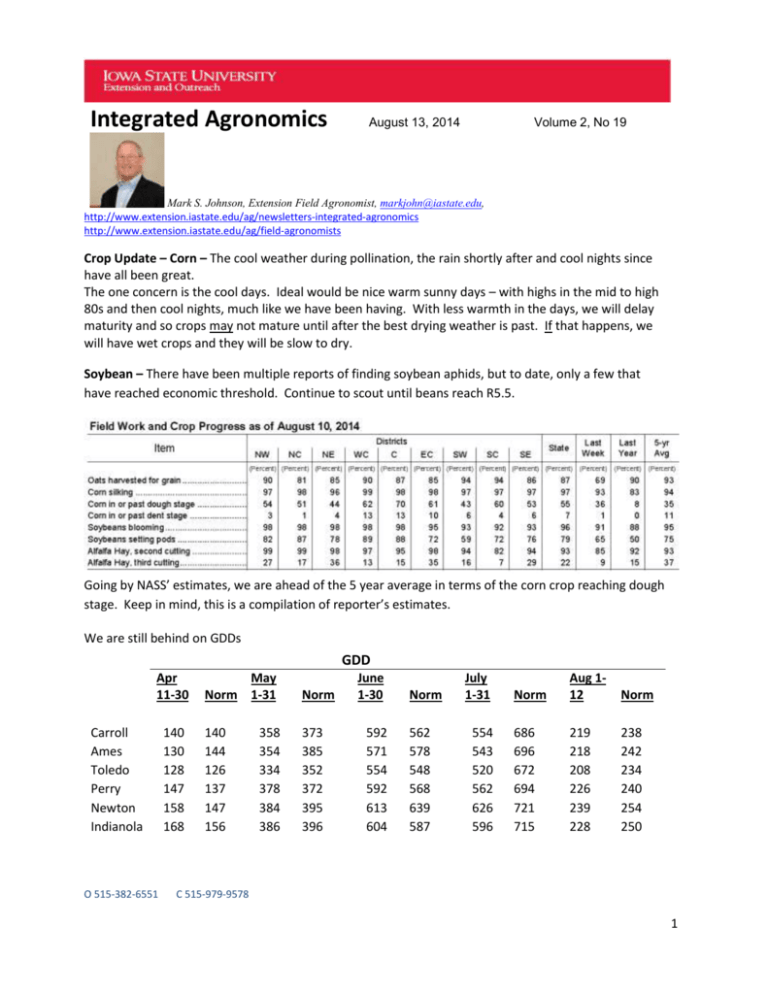
Integrated Agronomics August 13, 2014 Volume 2, No 19 Mark S. Johnson, Extension Field Agronomist, markjohn@iastate.edu, http://www.extension.iastate.edu/ag/newsletters-integrated-agronomics http://www.extension.iastate.edu/ag/field-agronomists Crop Update – Corn – The cool weather during pollination, the rain shortly after and cool nights since have all been great. The one concern is the cool days. Ideal would be nice warm sunny days – with highs in the mid to high 80s and then cool nights, much like we have been having. With less warmth in the days, we will delay maturity and so crops may not mature until after the best drying weather is past. If that happens, we will have wet crops and they will be slow to dry. Soybean – There have been multiple reports of finding soybean aphids, but to date, only a few that have reached economic threshold. Continue to scout until beans reach R5.5. Going by NASS’ estimates, we are ahead of the 5 year average in terms of the corn crop reaching dough stage. Keep in mind, this is a compilation of reporter’s estimates. We are still behind on GDDs GDD Apr 11-30 Carroll Ames Toledo Perry Newton Indianola O 515-382-6551 140 130 128 147 158 168 May Norm 1-31 Norm 140 144 126 137 147 156 373 385 352 372 395 396 358 354 334 378 384 386 June 1-30 592 571 554 592 613 604 Norm 562 578 548 568 639 587 July 1-31 554 543 520 562 626 596 Norm Aug 112 Norm 686 696 672 694 721 715 219 218 208 226 239 228 238 242 234 240 254 250 C 515-979-9578 1 April 11-Aug 12 2014 Norm Variance Carroll Ames Toledo Perry Newton Indianola 1863 1816 1744 1905 2020 1982 1999 2045 1932 2011 2156 2104 136 229 188 106 136 122 As we know, we have not been as dry the last 5 weeks as we were during that time the last two years. Precipitation Carroll Ames Toledo Perry Newton Indianola April May June July Aug 112 Combined 3.33 5.08 6.87 3.60 6.39 5.54 3.86 5.40 2.24 3.65 4.67 6.95 7.78 8.04 9.34 10.97 6.39 5.56 5.85 4.68 7.54 2.93 4.71 2.66 3.24 1.67 0.62 3.24 1.15 1.96 24.06 24.87 26.61 24.39 23.31 22.67 Cover Crops – It won’t be long before aerial seeding of cover crops can take place. For seeding into standing corn, seed just as the corn reaches physiological maturity. If you can see the black layer (BL), go for it. Even when the milk line is just about to the bottom but you don’t see a black layer yet, you can proceed. For seeding into standing soybean, seed when the leaves start to yellow. If you are waiting to drill or have your retailer air seed, do so as soon after the combine as possible regardless of 2014 crop being soybean or corn. This can continue right up to the end of October, but the sooner the better. Now is the time to be looking at possible herbicide/cover crop interactions. Here are a couple of resources: http://practicalfarmers.org/farmer-knowledge/research-reports/2014/herbicide-carryover-injury-cover-crops/ http://extension.psu.edu/plants/crops/soil-management/cover-crops/herbicide-persistence/herbicide-carryover-table If you are still trying to decide which cover crops to use, here is a good resource: http://www.mccc.msu.edu/ Click on cover crop selector tools. Dates – Series of grazing meetings across Iowa the week of August 22. Extension Beef Specialists will be working with grazing consultant Jim Gerrish, local producers, & other resource people to deliver 5 workshops and 8 pasture - http://www.iowabeefcenter.org/news/GerrishSeriesReminder2014.html O 515-382-6551 C 515-979-9578 2


